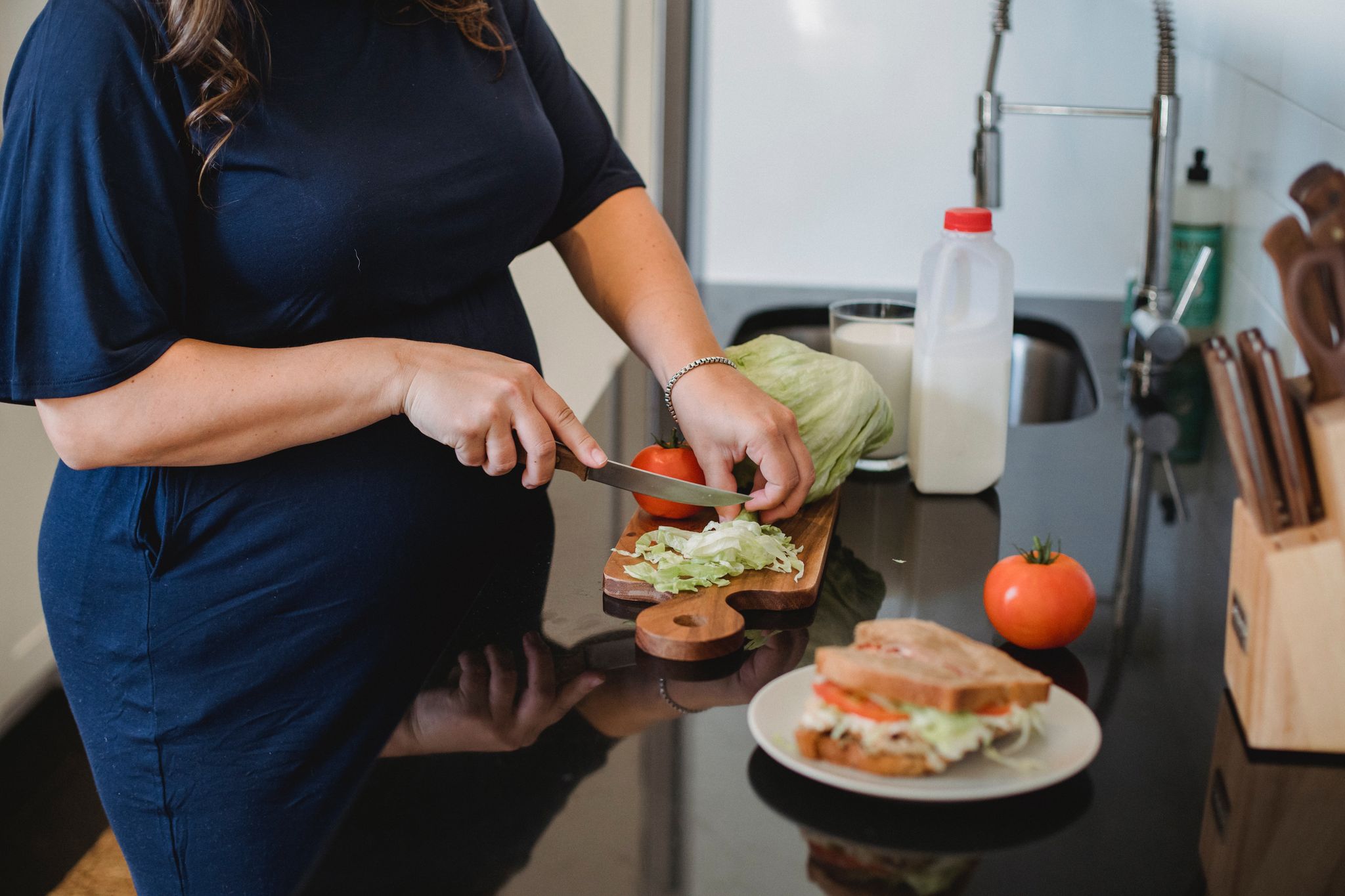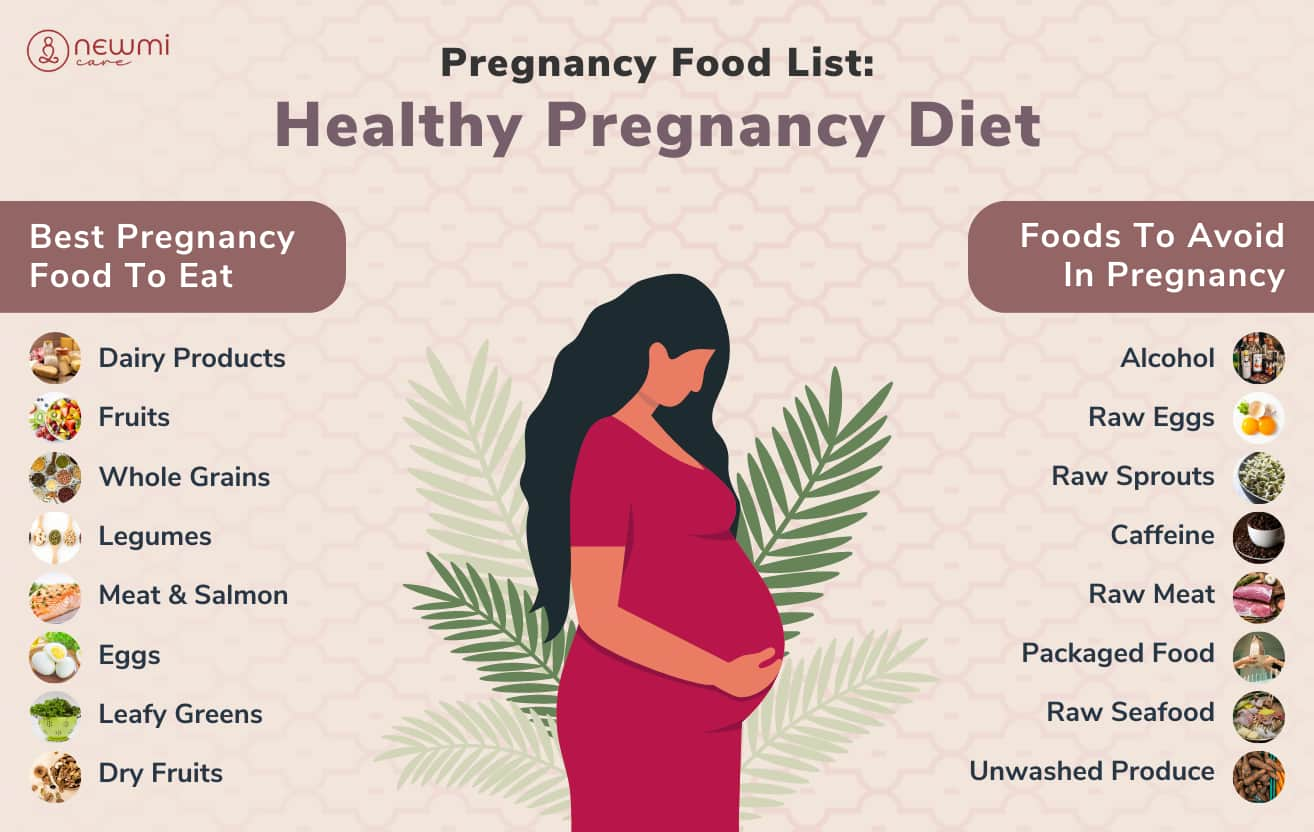Pregnancy Diet: Why it is Important to Plan your Pregnancy Diet?

Soon after getting pregnant, you must have heard your elders saying to eat healthy food during pregnancy or take healthy pregancy diet. But what is the right way of planning for pregnancy diet? Why are these new kinds of nutritional requirements worth paying attention to? What is the best food when pregnant? What foods to avoid during pregnancy?
Hush! Too many questions, too much confusion, right?
We completely understand your state and that is why we have curated this blog for you. It has all the information that you will need about prenatal nutrition and diet. So, buckle down and let’s get started without further ado.
Table of Contents:
- What is Prenatal Nutrition and why is it important?
- Ways to Make a Pregnancy Healthy Diet Plan
- Best Pregnancy Food
- In Pregnancy Which Foods to Avoid
- Frequently Asked Questions
- The Bottom Line
- What is Prenatal Nutrition and why is it important?
Studies have shown that poor or improper maternal diet has been responsible for higher death rates and fatalities for quite a long time. That’s why there is a need for awareness around prenatal nutrition. But what is it?
Prenatal nutrition or antenatal diet meets all the additional body requirements after one gets pregnant. It aims to support the health and well-being of pregnant women and their developing babies.
It focuses on meeting increased nutrient needs during pregnancy to support the formation of vital organs, bones, and tissues, as well as to maintain maternal health. It also plays a crucial role in reducing the risk of pregnancy complications, such as gestational diabetes and preterm birth.
Moreover, the need for folic acid, calcium, iron, vitamin D, omega-3 fatty acids, choline and vitamins B and C increases during pregnancy.
Hence, it is quite crucial to meet all the nutritional requirements of a pregnant diet plan.
Ways to Make a Pregnancy Healthy Diet Plan
Planning your pregnancy diet is not a piece of cake and one must consult a pregnancy dietician before deciding on anything. There are several steps that one must take in order to plan the pregnancy diet the right way. Here are all of those steps, have a look-
Consult a dietician
Consult a registered dietician or healthcare provider who specializes in prenatal nutrition. They can provide personalized advice and pregnancy diet plan based on your specific needs and medical history.
Get more information
Educate yourself about the dietary requirements during pregnancy. Read reliable sources, books, or articles to plan for pregnancy wisely.
Consider your individual needs
Take into account your personal preferences, cultural dietary practices, and any existing health conditions or allergies. And make sure to mention all this to your pregnancy dietician so that they can consider all this while chalking out a plan.
Stay hydrated
Drink an adequate amount of water throughout the day to support healthy digestion, circulation, and amniotic fluid production.
Consider supplementation
Discuss with your healthcare provider the need for prenatal vitamins or specific supplements like folic acid, iron, or omega-3 fatty acids to complement your diet.
Regularly monitor and adjust
As your pregnancy progresses, your nutritional needs may change. Stay in touch with your healthcare provider or dietician to monitor your diet and make necessary adjustments throughout your pregnancy journey.
Best Pregnancy Food
Wondering during pregnancy which food is good? We have got you covered as we have listed down the pregnancy food list that is strictly in accordance with pregnancy diet requirements. You can include these foods in your pregnancy diet plan without even thinking twice.

Check out the list about best pregnancy food to have -
Dairy Products
Here is the list of dairy products you must include in your diet and why-
Milk: Rich in calcium, protein, and vitamin D for baby's bone development, overall growth, and calcium absorption. Also provides B vitamins, phosphorus, and magnesium.
Yoghurt: Probiotic with Lactobacillus acidophilus and Bifidobacterium bifidum for gut health, digestion, and immune system. Good source of calcium, protein, and B vitamins.
Paneer: Rich in protein, calcium, and phosphorus for baby's bone and teeth development. Good source of vitamin B12 for nerve function.
Ghee: It is a concentrated energy source. Contains vitamins A, D, E, and K. Provides healthy fats for vitamin absorption and supports the baby's brain development.
Buttermilk: Refreshing drink from diluted yoghurt. Rich in calcium, potassium, and B vitamins. Alleviates acidity, constipation, and common digestive issues during pregnancy.
Cheese: Good source of calcium, protein, vitamin B12, zinc, phosphorus, and vitamin A. Choose pasteurized cheese to avoid harmful bacteria.

Fruits
Here are some fruits that are good to eat during pregnancy-
Oranges: High in vitamin C, which aids iron absorption, boosts the immune system and supports tissue repair and development.
Bananas: Rich in potassium, vitamin C, vitamin B6, and fibre, promoting proper blood pressure, immune function, and digestion.
Pomegranate: Contains antioxidants, iron, and vitamin C, supporting healthy blood circulation, preventing anaemia, and aiding fetal brain development.
Avocado: Provides healthy fats, folate, vitamin K, potassium, and fibre, supporting brain development, blood clotting, and overall growth.
Mangoes: Rich in vitamins A and C, fibre, and folate. Supports immune function, healthy skin, digestion, and fetal development.
Apples: High in fibre, vitamin C, and antioxidants. Supports digestion, regulates blood sugar levels, and promotes overall maternal health.
Grapes: Packed with vitamins C and K, antioxidants, and fibre. Enhances digestion, supports blood clotting, and provides energy.
Kiwi: Rich in vitamin C, vitamin E, fibre, and potassium. Boosts immunity, aids digestion, and supports overall maternal health.
Whole Grains and Legumes
Brown rice: Rich in fibre, B vitamins, and minerals. Provides sustained energy, aids digestion, and supports fetal development.
Quinoa: High in protein, fibre, iron, and magnesium. Supports tissue growth, prevents constipation, and provides essential nutrients.
Oats: Good source of fibre, B vitamins, and iron. Promotes digestion, regulates blood sugar levels, and provides sustained energy.
Lentils: Excellent source of protein, iron, and folate. Supports healthy growth and development of the baby.
Chickpeas: Packed with protein, fibre, iron, and folate. Aids in fetal development, supports digestion, and helps prevent anemia.
Moong beans: High in protein, fibre, and folate. Supports overall growth, digestion, and provides essential nutrients.
Black beans: Rich in protein, fibre, iron, and calcium. Supports fetal development, aids digestion, and promotes bone health.
Green peas: good source of protein, fibre, and vitamins. Supports baby's growth, aids digestion, and provides essential nutrients.
Masoor dal: Contains protein, fibre, iron, and folate. Supports blood production, aids digestion, and provides essential nutrients.
Chana dal: Provides protein, fibre, iron, and folate. Supports fetal growth, aids digestion, and provides essential nutrients.
Meat and Salmon
Meat and fish are necessary during pregnancy due to their high-quality protein, iron, and omega-3 fatty acids. Protein supports fetal growth and maternal tissue development. Iron aids in red blood cell production. Omega-3 fatty acids promote brain and visual development in the baby.
Eggs
Eggs are a fantastic source of high-quality protein, vitamins, minerals, and important fatty acids, including choline and B vitamins. These nutrients aid in the development of the baby's brain, growth, and overall mother's health.
Leafy Greens
Here are some leafy greens you must include in your pregnancy diet plan Indian-
Spinach: Rich in iron, folate, and vitamins A and C. Supports red blood cell production, prevents anaemia, aids in fetal development, and boosts immunity.
Fenugreek leaves: High in iron, calcium, and dietary fibre. Promotes healthy blood circulation, aids digestion, and provides essential nutrients for both mother and baby.
Amaranth leaves: Packed with iron, calcium, vitamins A and C, and antioxidants. Supports blood production, bone health, immunity, and overall maternal health.
Drumstick leaves: Contains iron, calcium, vitamin C, and antioxidants. Aids in blood formation, boosts immunity, supports bone health, and provides essential nutrients.
Mustard greens: Rich in folate, calcium, and vitamins A and C. Supports fetal growth and development, aids bone health, and boosts immune function.
Coriander leaves: Provides vitamin C, iron, and antioxidants. Enhances iron absorption, supports immune function, aids digestion, and provides essential nutrients.
Dry Fruits
Here are some dry fruits that you must include in your pregnancy diet-
Almonds: High in healthy fats, vitamin E, calcium, and fibre. Supports brain development, provides energy, aids digestion, and promotes healthy skin and hair.
Walnuts: Rich in omega-3 fatty acids, protein, and antioxidants. Supports brain development, boosts heart health, aids digestion, and provides essential nutrients.
Dates: High in natural sugars, fibre, iron, and potassium. Provides energy, aids digestion, prevents constipation, and supports overall maternal health.
Raisins: Packed with iron, fibre, and antioxidants. Aids in blood formation, promotes digestion, prevents constipation, and supports overall maternal health.
Pistachios: Contains protein, fibre, healthy fats, and essential nutrients. Supports heart health, aids digestion, provides energy, and promotes overall well-being.
Cashews: Rich in healthy fats, protein, and minerals. Supports fetal development, aids digestion, boosts energy, and provides essential nutrients for both mother and baby.

In Pregnancy Which Foods to Avoid
Now that we have covered what foods to eat, let’s look at what foods you must avoid-
Raw or undercooked eggs: May contain harmful bacteria like Salmonella, increasing the risk of foodborne illnesses.
Raw or undercooked meat: May contain parasites or bacteria, posing a risk of foodborne infections.
Unpasteurized dairy products: May contain harmful bacteria like Listeria, which can lead to severe infections and harm the baby.
Excessive caffeine: High caffeine intake can increase the risk of miscarriage or preterm birth. Limit caffeine consumption during pregnancy.
Alcohol: Consuming alcohol during pregnancy can lead to fetal alcohol syndrome, causing developmental issues and lifelong disabilities.
Processed and packaged foods: Often high in sodium, unhealthy fats, and additives. Opt for fresh and whole foods for a healthier pregnancy diet.
Raw or undercooked seafood: This may contain parasites or bacteria, such as Vibrio or Toxoplasma, increasing the risk of foodborne illnesses.
Raw sprouts: May carry bacteria like E. coli or Salmonella, causing foodborne illnesses.
Read more about “which food to avoid in pregnancy?”
Frequently Asked Questions
There are quite a lot of questions around antenatal diet plan and prenatal nutrition. It is mainly because when it comes to healthy pregnancy food, mothers-to-be get confused about what foods they should avoid and must eat during pregnancy.
Although we have covered most of the doubts in our blog, we still have listed down some most-asked questions along with their answers for your convenience have a look:
What are some Pregnancy nutrition requirements?
Nutritional requirements during pregnancy include protein, calcium, iron, folic acid, vitamins- A, B, C, D, choline, omega-3 fatty acids, etc.
Is hiring a dietician necessary during pregnancy, if yes then why?
Yes, because they have years of experience an know which food items when consumed together will give you the best results. Moreover, they can help you in customizing you diet chart as per your schedule and needs.
What foods should one avoid during pregnancy?
To reduce the risk of foodborne infections and possible harm to the unborn child, it is advised to stay away from processed/packaged foods, unpasteurized dairy, raw sprouts, high-mercury fish, excessive caffeine, and alcohol while pregnant.
Why having a balanced diet during pregnancy important?
Maintaining a balanced diet during pregnancy is crucial as it provides essential nutrients for the baby's growth, supports maternal health, reduces the risk of complications, and ensures overall well-being for both mother and child.
The Bottom Line
Pregnancy is a crucial period and requires utmost attention. You have a life growing inside you, you have to take care of your diet because what you consume is also what your baby consumes.
And now that you have ample amount of information, start on the journey of having a healthy pregnancy diet with our help today. Check out our complete pregnancy care plans and get in touch with us in case of questions or doubts.
Leave a Comment
Blogs
Popular Posts
Get the latest from Newmi
Subscribe to get Email Updates!
Thanks for subscribe.
Your response has been recorded.
COPYRIGHT © 2025 KA HEALTHCARE PVT LTD - ALL RIGHTS RESERVED.
Disclaimer: NEWMI CARE does not cater to any medical/Pregnancy or psychiatric emergencies. If you are in a life-threatening situation, please do NOT use this site. If you are feeling suicidal, we recommend you call a suicide prevention helpline or go to your nearest hospital.

0 Comment